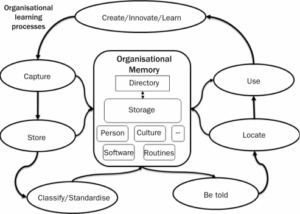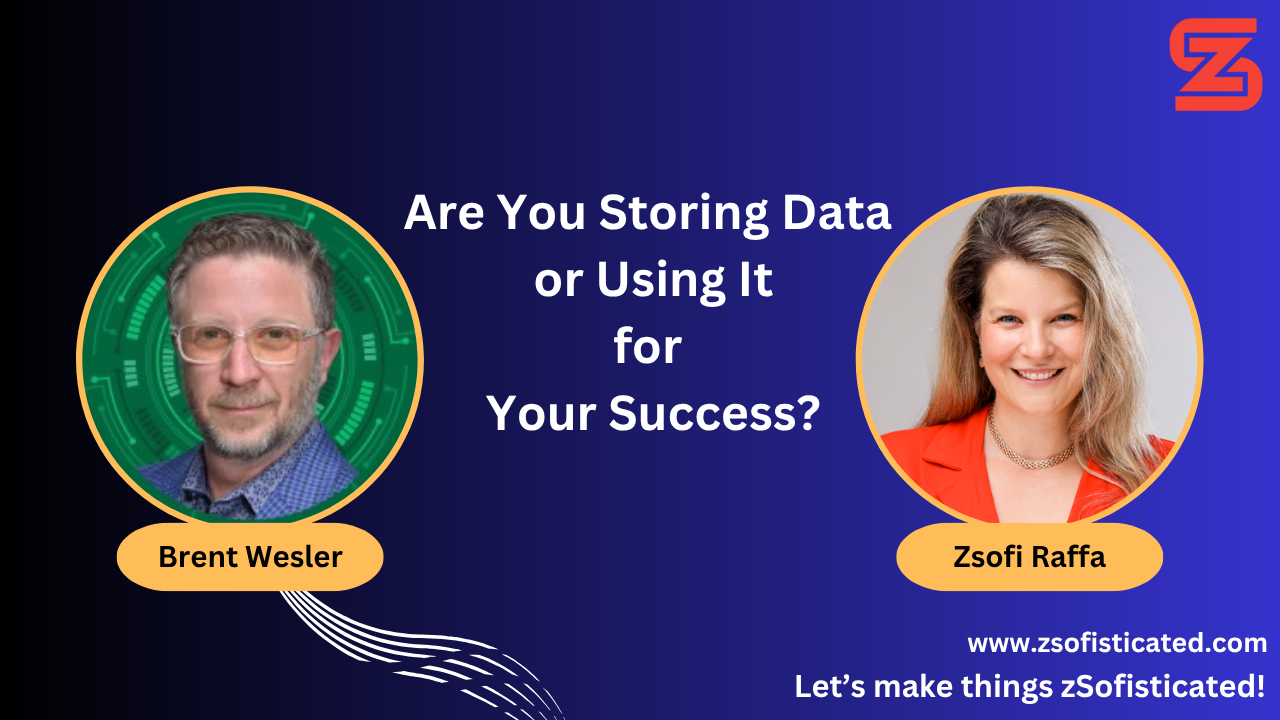By Zsofia Raffa, Digital Marketing & AI Consultant and Freelancer Journalist
Global data generation is expected to reach 200 zettabytes by end of 2025. This staggering figure highlights a growing paradox: while data is more abundant than ever, actionable insights remain scarce. This paradox has led to a critical shift in mindset: from simply storing data to strategically using it.
The concept of organizational memory is emerging; a way of thinking where data becomes a living asset, constantly analyzed, contextualized, and applied to decision-making. Artificial Intelligence (AI) is playing a catalyst role in this transformation, turning static data into intelligent, real-time business tools.

Resource: https://www.sciencedirect.com/topics/computer-science/organisational-memory
To explore this further, I spoke with Brent Wesler, Vice President of Technology at Vital Records Control. His insights into workflow automation and intelligent data management offer a valuable roadmap for marketing leaders and business innovators navigating these changes.

Click here to listen our podcast: https://youtu.be/R9X0LcxL6g4
Why Data Storage Alone Is No Longer Enough?
For many years, data management was driven by compliance. Companies collected huge amounts of data, focused on the number of Marketing Qualified Leads (MQLs) and tried to follow all the regulations, such as GDPR in Europe or HIPAA in the U.S. to fulfill all the requirements. While these regulations are essential, they also led many businesses to treat data passively, concentrating on safe storage and not something to use.
This mindset is rapidly changing. As Mr. Wesler explains – “modern businesses are moving beyond isolated storage systems. Instead, they’re embedding data into core ERP and CRM Systems, where they extract their value in real time.”
For marketers, this evolution opens new possibilities. Customer data isn’t just for reporting but it’s the foundation for predictive intelligence and models, personalized campaigns, and smarter customer journeys. The organizations that succeed will be those that turn data into a proactive, strategic force across their operations.
AI and Automation: Freeing People for What Matters
AI is ideal for automating repetitive tasks. From healthcare to finance, automation is transforming workflows that were once slow, manual, and prone to error.
In marketing, AI tools already analyze engagement metrics, predict customer behavior, and personalize content in real time. This not only improves campaign results but also allows business leaders to focus on creativity and strategy.
According to Mr. Wesler, “roles based on repetitive tasks, like manual data entry or routine QA are likely to disappear by 2030. However, the goal is not job replacement, but rather the strategic reallocation of talent”. For business leaders, the key is to identify which tasks can be automated and how to direct teams for innovation and growth.
Real-World Impact: Healthcare as a Data Workflow Pioneer
Let’s look at a compelling real-world example from the healthcare sector, an industry already utilizing AI-driven data workflows. Vital Records Control managed a self-hosted large language model (LLM) and was deployed to extract information from medical documents. With 90% accuracy, the system integrates directly with electronic medical records (EMRs) and flags missing or mismatched patient data.
For marketers, similar systems already exist. AI-powered CRMs can automatically update lead profiles; predictive analytics can optimize campaign targeting, and AI-driven chatbots can respond to customer inquiries with human-like precision. These are not theoretical ideas but practical solutions to real-world challenges.
The takeaway is clear: AI is especially well-suited for automating repetitive tasks. When used correctly, it not only increases efficiency but also builds stronger customer relationships through relevance and responsiveness.
Data as a Strategic Partner
Data not only supports strategy but it becomes an inevitable part of it. Emerging tools powered by AI can answer natural language questions like, “What caused customer churn last quarter?” and deliver clear, actionable insights and even roadmaps to improve.
But with this power comes responsibility. As AI tools grow more advanced, so do concerns around data privacy, transparency, and bias. Businesses must put governance frameworks in place to ensure their use of AI is not only effective but also ethical.
For marketing leaders, trust is everything. The brands that thrive will be those that use data to drive relevance and demonstrate respect for customer privacy.
The future belongs to leaders who transform their data into intelligence. Now is the time to invest in systems and skills that turn passive records into active strategies. The question is no longer if you should act but how fast you can move.
About the Author

Zsofia Raffa is a seasoned digital marketing strategist and AI go-to-market (GTM) consultant. She supports AI-driven companies, Series A/B startups, and mid-sized enterprises on their journey to scalable growth and market relevance.
With over 15 years of experience working with global innovators like Kodak Alaris, NVIDIA, ADLINK Technology, and Lufthansa, Zsofia combines deep expertise in AI-powered marketing, B2B storytelling, and content strategy that grows with your business.
As the editor of the zSofisticated blog, she shares actionable insights on modern GTM strategies, AI marketing, and demand generation, especially for companies building or deploying intelligent solutions across healthcare, SaaS, and enterprise tech.
Let’s things #zSofisticated together! https://linktr.ee/zsofisticated

